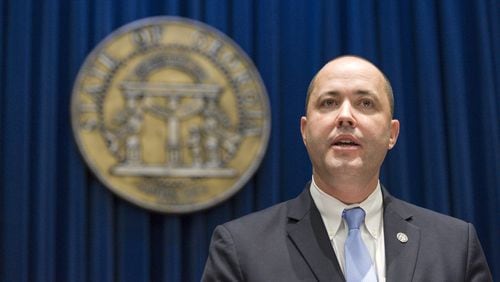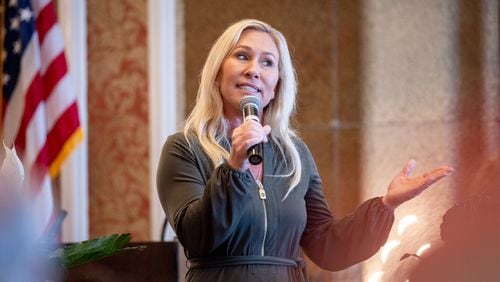The state attorney general's office has come out against a proposal from the Fulton County attorney that would limit public access to open records.
In a letter emailed to Fulton County Attorney Patrise Perkins-Hooker on Tuesday, Assistant Attorney General Jennifer Colangelo said the proposal to curtail the number of open records requests allowed in state law "is not an effort that our office could, or does, support."
“Limiting the rights of all citizens to make requests is not in keeping with the spirit and intent of the Open Records Act,” Colangelo wrote.
Perkins-Hooker proposed a change to the open records law that would label some requests as "frivolous and abusive." The proposal called for a limit to open records requests from people who are not members of the media. People would not be able to make more than two open records requests to the same agency during any 10-day period, or 15 in a year.
It would also fine people $1,000 for making additional requests. Additional violations within a year could be fined $2,500 each, and people who violated the proposed law could be convicted of a misdemeanor.
Currently, there are no limits to how many or how frequently open records requests can be made.
After the change was proposed, Fulton County commissioners questioned whether it appeared to limit transparency. Open records advocates said the proposal is counter to the spirit of the law.
Perkins-Hooker told Fulton County commissioners last week that the attorney general’s office “did agree to the concept” of the change in law to protect against abusive filings. In the letter, Colangelo said Perkins-Hooker had met with attorneys from the office over the summer to discuss the issue of frivolous or abusive requests.
The conversation, Colangelo wrote, focused on “requesters that were making duplicative requests or broad, burdensome requests that entailed significant staff resources” and were intended to “burden or harass” the county.
“While our office appreciates your stated concern that the Act should not be abused, your submitted proposal appears to be overbroad and unduly burdens the rights of the public in inspecting the records which are, at heart, their own records merely held in the custody of the public servants entrusted by the public to maintain the public’s own records,” she wrote.
In an emailed statement, Perkins-Hooker said she appreciated the feedback on the county’s proposal.
“Our efforts were never designed to prevent reasonable open records requests or limit transparency, but rather to prevent abuse of the law,” Perkins-Hooker said.
While media requests were exempted from the proposed law, plenty of records are requested by non-media groups for the public good, said Viola Davis, who heads Unhappy Taxpayer and Voter in DeKalb County. Davis said she has used access to open records to identify waste and mismanagement that has led to investigations and prosecutions.
“That’s one of our major tools to find out the truth,” she said. “Can you imagine what would happen if they limited it?”
Davis said she was happy that the attorney general’s office had spoken out in opposition to the proposal. She questioned who would determine that a request was “frivolous.” In her letter, Colangelo said the proposal did not directly address the alleged frivolous or abusive requests.
“Instead, it simply limits the number of requests, regardless of apparent or latent validity, need, or motivation underlying the request, of all non-media requesters,” she wrote.
Amy Henderson, a spokesperson for the Georgia Municipal Association, said abusive records requests can sometimes be a problem in Georgia’s cities — particularly small ones, where city halls are only open a few days a week. Some residents use open records requests to garner information about employees or elected officials they may have a vendetta against.
Still, she said, her group would not condone a change in the law such as Perkins-Hooker proposed.
“Those are public records, and people should be able to access them,” Henderson said. “We would not suggest the law be changed or people punished for asking for them.”
About the Author








